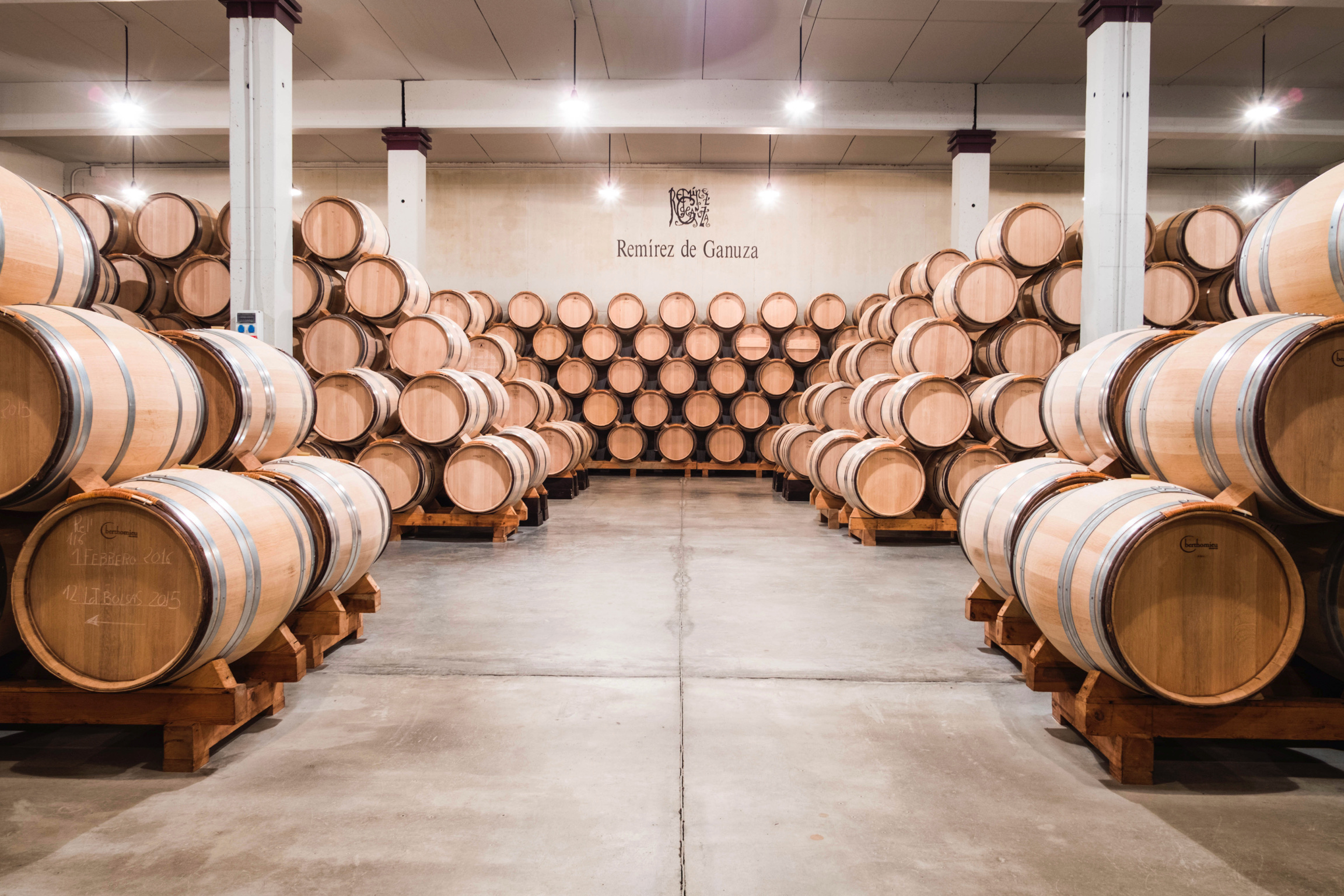This website uses cookies so that we can provide you with the best user experience possible. Cookie information is stored in your browser and performs functions such as recognising you when you return to our website and helping our team to understand which sections of the website you find most interesting and useful.
Industry accused of spreading lies about alcohol and health
A report by UK academics has accused the drinks industry of, “actively disseminating misinformation about alcohol and cancer risk, particularly breast cancer,” comparing it to the tobacco industry’s “denial, distortion and distraction tactics”.
The paper (which can be found here) has in turn been described as a “diatribe” disguised as science, that wilfully misrepresents the evidence it puts forward and is designed to enhance the belief that anti-alcohol campaigners are always in the right.
The paper, compiled by researchers at the London School of Hygiene and Tropical Medicine and published in the Drug and Alcohol Review, has been picked up as a lead feature in this morning’s Guardian newspaper as well.
The report states that having “thematically” examined texts relating to alcohol and cancer from 27 drinks organisations: “Most of the organisations were found to disseminate misrepresentations of the evidence about the association between alcohol and cancer.
“Three main industry strategies were identified: (i) denial/omission: denying, omitting or disputing the evidence that alcohol consumption increases cancer risk; (ii) distortion: mentioning cancer, but misrepresenting the risk; and (iii) distraction: focussing discussion away from the independent effects of alcohol on common cancers. Breast cancer and colorectal cancer appeared to be a particular focus for this misrepresentation.”
As a result, the researchers concluded: The Alcohol Industry (AI) appears to be engaged in the extensive misrepresentation of evidence about the alcohol-related risk of cancer. These activities have parallels with those of the tobacco industry.
“Our analysis suggests that the major global alcohol producers may attempt to mitigate this risk by disseminating misleading information about cancer through their ‘responsible drinking’ bodies. The existing evidence of strategies employed by the AI suggests that this may not be a matter of simple error.”
Among the key points the report flagged up was the claim that the drinks industry tries to downplay cancer risks by, “claiming inaccurately that there is no risk for light of ‘moderate’ drinking,” or that, “claiming or implying that the risk applies only to particular patterns of drinking (heavy drinking or binge drinking)” and that it minimises, “the role of alcohol by pointing to a wide range of other risk factors for cancer.”
The authors were also particularly fierce in their condemnation of the industry for ‘hiding’ or ‘not acknowledging’ the risk of breast cancer which it implied was a cynical move by the industry which was currently trying to “develop the female alcohol market.”
Industry response
The industry-backed Portman Group and independent charity Drinkaware (which the Guardian inaccurately says is “financed by the alcohol industry” – it does receive donations from drinks companies however) were both among those criticised for, according to the authors, disseminating false or misleading information.
John Timothy chief executive Portman Group, said in a statement: “We take alcohol misuse extremely seriously and advise people to consume alcohol responsibly and in line with recommended guidelines. Any suggestion otherwise is a misrepresentation of our approach and fails to reflect our commitment to responsible drinking. It is vital that academic research and commentary about lifestyle risks is presented fairly, accurately and in context so that people can make rational and informed choices in their everyday lives.”
“In the UK, producers and retailers support many charities and organisations which provide consumers with practical and evidence-based information about alcohol and their health and have a long history of promoting responsible drinking messages.”
In a statement to the drinks business Drinkaware replied: “The Drinkaware Trust is an independent alcohol education charity with a clear remit to provide evidence-based information and tackle alcohol-related harm.
“Its purpose is to reduce alcohol misuse and harm in the UK. Although funded by donations from alcohol producers, supermarkets and others, it is not an industry organisation.
“The Drinkaware website carries extensive information about alcohol and health, all of which has been approved by Drinkaware’s Medical Advisory Panel which is made up of senior and independent experts.
“The Panel regularly reviews peer-reviewed medical evidence and how Drinkaware presents this information to the public to ensure that it is doing so in an accurate and reliable manner.
“Its recent review of Drinkaware’s cancer information, which is extensive, has confirmed that the information we are providing accurately reflects the most recent research evidence.
“More generally, Drinkaware has been certified as a producer of reliable health and social care information under the Information Standard which is a programme designed to ensure that public health information services adhere to a set of best practice principles; use only recognised evidence sources and present all information in a clear and balanced way.”
The charity’s own page on alcohol and breast cancer quite clearly makes all the points raised in the paper. At no point does it claim there is no link between alcohol consumption and breast cancer in fact it’s very opening paragraph says that breast cancer, not liver cancer, should be the first cancer or disease people think of when considering the ill-effects of too much alcohol consumption.
It also clearly states that:
- There is good evidence to suggest that alcohol increases the risk of developing breast cancer.
- Of course drinking alcohol does not mean you will automatically get breast cancer, it does mean your risk of developing it will be increased.
- How much you drink over your lifetime is what increases the risk.
Such caveats, however, would be, and indeed appear to have been, construed by the study’s authors as “distorting” the facts about cancer and drink, something it generally implies is endemic throughout the industry.
A particularly egregious claim from the report is the SAB Miller’s health advice on talkingalcohol.com, states: “that there is no link between alcohol and most cancers except for ‘mainly cancers of the upper aerodigestive tract’ and the liver.”
SAB Miller’s advice says nothing of the sort as can be seen here in full. As its website states:
“Alcohol consumption has been studied as a possible cause of cancer, especially in recent years, and some organisations have concluded that alcohol consumption can cause certain types of cancer. For example, the International Agency for Research on Cancer (IARC), a part of the World Health Organisation, has concluded that cancers of the oral cavity, pharynx, larynx, oesophagus, liver, colorectum, and breast are caused by alcohol consumption and that the risk increases with the amount of alcohol consumed. Alcohol may also be linked to other forms of cancer including lung, stomach, pancreatic and endometrial cancer. The United States National Toxicology Program (NTP) found that studies indicate that the risk of cancer related to alcohol consumption is most pronounced among smokers and at the highest levels of consumption.
“On the other hand, some studies have suggested that moderate alcohol consumption can be linked to a lower risk of bladder, kidney, ovarian and prostate cancer, as well as non-Hodgkin lymphoma. Still, we do not encourage people to drink alcohol beverages for any health benefits they may provide.”
It may not be as hard hitting as is necessary but it does not deny the link between alcohol and cancer and stresses that people should not drink for supposed health benefits.
Partner Content
A further attempt to twist SAB Miller’s words is done in trying to insinuate the company as denying the link between alcohol and breast cancer.
Under a sub-heading entitled: ‘Claiming or implying that, as knowledge of the mechanism is incomplete, the evidence of a causal relationship is not trustworthy, and/or claiming a lack of expert consensus,’ they quote from the website: “Although alcohol is a well-established risk factor for breast cancer, the mechanism by which alcohol consumption may cause breast cancer is not fully known.”
This however is true. How alcohol causes breast cancer is not fully known and there are various forms of breast cancer so there is absolutely no controversy in SAB Miller stating that the link between the two is still being researched.
A blog on Cancer Research UK on the link between alcohol and cancer posted just last year quotes Dr Ketan Patel as saying: “We don’t really know. We don’t fully understand why alcohol causes some cancers and not others.”
Yet again the report puts forward a blatant untruth when it states that Diageo’s DrinkIQ.com contains no reference to cancer as a result of drinking.
It does, here, stating: “Research shows that compared with women who do not drink, those who consume even moderately have a higher risk of developing breast cancer.”
Admittedly the reference is not on the page entitled ‘Alcohol’s short-term and long-term effects on your body’ but rather ‘The effect alcohol has on your organs’ but the page can be found by typing the word ‘cancer’ into the site’s search function. Something the researchers either did not do or chose to ignore.
The study also claims that Bacardi, Asahi, Kirin, Molson Coors and Brown Forman have no mention on the link between alcohol and cancer at all on their websites. This is true in the majority of cases, although the Asahi site links through to both Drinkaware’s website and talkingalcohol.com and Molson Coor’s website, with little searching, does actually contain a letter detailing Molson Coor’s position on alcohol and health where cancer is mentioned.
Speaking to db, a spokesperson for the International Scientific Forum for Alcohol Research (ISFAR), said there has been a long acknowledged link between alcohol and breast cancer (and other cancers and diseases) but that the idea alcohol itself was entirely to blame for any one condition in isolation was wrong.
The report’s apparent criticism of the message of ‘drinking in moderation’ was also, therefore, poor and indicative of its one-sided and largely prejudiced approach to the alcohol and health debate.
The ISFAR spokesperson continued that it was quite clear from multiple studies that the risk of breast and other cancers was balanced out by moderate drinking and a healthy diet and lifestyle. To suggest otherwise flies in the face of much current medical findings. Other factors besides alcohol have a very clear impact on raising one’s cancer risk.
“If you drink heavily, are overweight and have a poor diet then there’s no doubt you’re at risk,” they said.
Furthermore, it’s well known that a healthy human body can break down one unit of alcohol an hour. Huge consumption of alcohol in a short space of time is much harder for the liver to process leading to a build up of acetaldehyde, which is a carcinogen in large quantities. Repeat binge drinking leads to a build up of this poison in the system (especially in the gut) and thus an increase in the risk of cancer – bowel and rectal cancers in particular.
Moderate drinking within medical guidelines and ‘off-days’ where no alcohol is consumed allows the body to recover and break down the acetaldehyde leading to a much reduced risk of bowel cancers. To claim, as the study does, that moderate drinking is the equivalent of an industry ‘cop out’ is a statement as inaccurate and misleading as that which the study rails against.
Just last month an American study concluded that light to moderate drinking might in fact have a “protective effect” on cancers and other diseases, while heavy to binge drinking was naturally associated with an increased risk of the same diseases.
“Alcohol is linked with cancer,” the spokesperson stated but added, “it’s one of multiple risk factors and it’s right to put that risk in context. You can’t generalise about alcohol and cancer because there are so many different types.”
In a statement to the db, Christopher Snowden, head of lifestyle economics at the Institute of Economic Affairs, said the researchers were guilty of their own “cherry-picking” of quotes and facts.
“This is a diatribe disguised as a study that seeks to create a false narrative in which businesses always lie and anti-alcohol campaigners always tell the truth.
“The authors cherry-pick various quotes from industry bodies which, upon inspection, are generally a fair reflection of the science.
Drinkaware is an independent charity that receives unsolicited donations from the drinks industry among other sources
“The alcohol industry is dominated by large, blue-chip companies that would be sued if they propagated false information about their products. Anti-drinking academics are under no such pressure to get their facts straight.”
The Department of Health (DOH) likewise told the Guardian and db that it rejected the study’s suggestion that policymakers should, “reconsider the appropriateness of their relationships to these AI bodies.”
The statement reads: “We are clear on the links between excessive alcohol consumption and cancer, supported by the UK Chief Medical Officer’s guidelines. Public Health England regularly promotes the message that you can reduce your risk of cancers by making lifestyle changes through national campaigns like One You.”
Among the various facts provided by the DOH with regards drink and health awareness in the UK, it was also revealed that, “Drinkaware an independent UK-wide alcohol education charity and governed independently of the alcohol industry received over 8.5 million unique visitors [to its website] and provides vital information, including the full detail of the CMO guidelines, to help people make informed choices about their drinking.”
Further facts on drinking levels in the UK supplied by the DOH
- In 2014, UK alcohol consumption was 9.4 litres per adult(15 and over). This is below the average EU28 consumption of 10.0 litres per adult (and continues to decline, db) [source: OECD]
- In latest figures 57% of adults reported drinking alcohol in the previous week in 2016 which is a fall from 64% in 2006. [source: NHS Digital, Statistics on Alcohol England, 2017]






Just as bad as lumping all cancers into a single “bucket”, would it not make sense to separate the health risks from beer, wine, and spirits separately?
I’m not sure there is any difference in regards to cancer risk, other than average alcohol content.
I always doubt any agenda based governmental or academic claims. It is about politics and in this case neo prohibitionist agenda to them, not truth. Most biological effect claims have many studies showing different results. Often the governmental funded ones are politically based agenda funding, which should be ended in all countries.